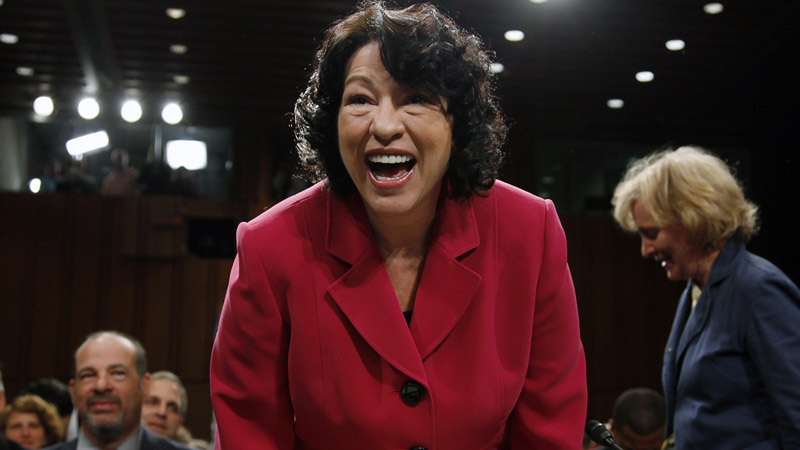The liberal justices of the U.S. Supreme Court have issued a stark warning about the conservative majority’s approach to individual rights, as evident from a recent low-profile immigration case. Justice Sonia Sotomayor, in her dissent, drew parallels between the conservative stance in the case and the 5-4 decision two years ago that struck down abortion rights.
She was joined in her dissent by fellow liberal justices Elena Kagan and Ketanji Brown Jackson. The case in question involved a Salvadoran man’s immigrant visa, which CNN’s senior Supreme Court analyst Joan Biskupic described as potentially more than just an immigration dispute. Justice Amy Coney Barrett, who wrote the 6-3 decision, labeled Sotomayor’s dissent as an overreaction.
However, Biskupic noted, “The right-wing pattern of diminishing individual rights lurks in the background.” The conservative majority’s decision-making pattern, especially since Donald Trump’s appointment of three conservative justices, has rekindled debates over various reproductive issues, including in-vitro fertilization, following the landmark Dobbs decision.
This decision overturned Roe v. Wade, fundamentally altering the landscape of reproductive rights in the United States. Biskupic highlighted that although the Dobbs decision has significantly impacted American life, it is seldom cited by the conservative justices at the high court. Conversely, the liberal justices have used their dissent from the Dobbs case to criticize the majority’s approach to precedent.
The intensity of the rhetoric in their latest dissent signals a heightened concern about the erosion of substantive rights. The justices’ sharp divisions and the liberal justices’ urgent tone suggest they are bracing for further contentious rulings as the court attempts to wrap up its 2023-24 session. Their dissent in the immigration case may serve as a precursor to more significant battles over individual rights in future court sessions.
This ongoing tension within the Supreme Court underscores the significant ideological rifts that could shape U.S. law for years to come, highlighting the critical role of the judiciary in determining the trajectory of civil liberties in the country.

